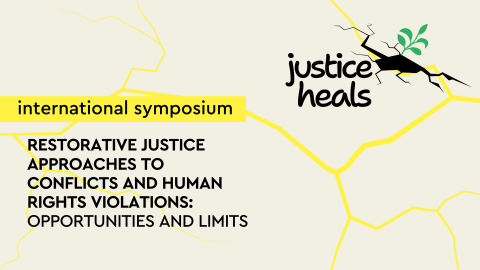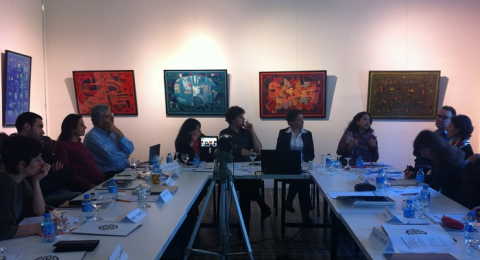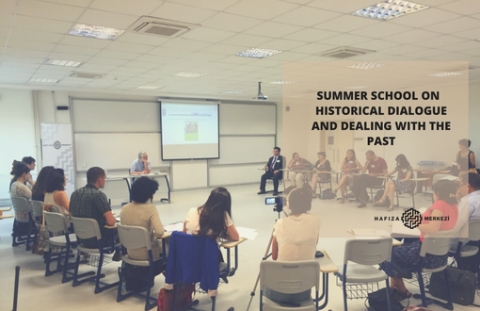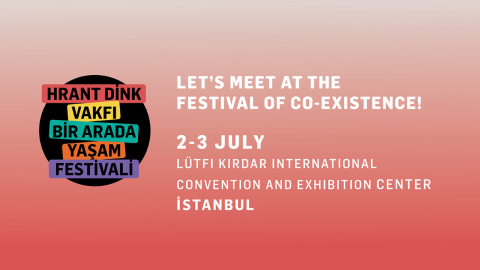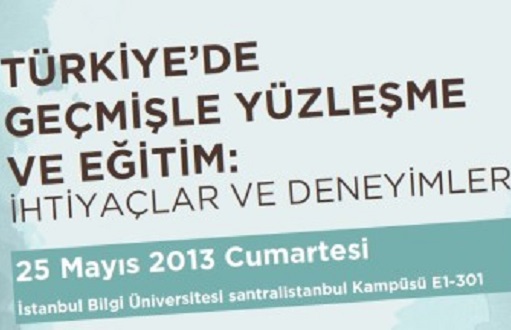
Istanbul Bilgi University’s Sociology and Education Studies Unit (SEÇBİR) and The Truth Justice Memory Center held a symposium titled “Confronting the Past and Education in Turkey: Needs and Experiences” on Saturday, 25 May 2013 at Istanbul Bilgi University’s Santralistanbul Campus in the E1-301 Salon.
In the symposium we opened discussions on the following questions:
- How can the subject of confronting the past be approached from various disciplinary perspectives?
- How does education on its own construct a collective memory?
- What sort of field can education open through the process of confronting the past?
- What means can education and educators use to contribute to the ideal of coexistence?
- In this regard, what kinds of materials, textbooks, and teachers’ guidebooks need to be developed?
You can view the symposium announcement here.
Program
Kenan Çayır from Seçbir and Meltem Aslan from the Hafıza Merkezi spoke on the first panel, which was chaired by Aydın Uğur from Istanbul Bilgi University’s Sociology Department. In his presentation, titled “The Role of Education in the Peace Process: Forgetting, Remembering, and Confronting?”, Çayır focused on the role of education in the construction of peace and confronting the past. Aslan, whose presentation was titled “Transitional Justice Mechanisms in Confronting the Past,” emphasized the importance of transitional justice mechanisms, particularly truth commissions and memorialization, in terms of the demands of victims and democratization.
The second panel, titled “Memory and Confronting the Past from Various Disciplinary Perspectives,” was chaired by Emrah Gürsel from the Center and featured sociologist Neşe Özgen from Mimar Sinan University of the Fine Arts. Her talk, titled “‘The Disappeared’ and Imagining the Homeland in Textbooks from a Historical Perspective,” was about the geography textbooks used by the Ministry of Education. Bülent Bilmez from Istanbul Bilgi University and from the History Association gave a talk that brought a critical perspective on the concept of “accounting”: “The Thorny Paths of Confronting and Accounting for Our Recent History: On its Ways, Procedures, and Goals.”
The last panel featured two presentations concerning projects conducted for the purpose of developing a culture of peace in the field of education. Meltem Onurkan Samani from the European University of Lefke spoke on behalf of the Historical Dialogue and Research Foundation (AHDR) in Northern Cyprus about its efforts to create a teacher handbook concerning the disappeared from both societies on the island, as well as shared the foundation’s other projects. Mutlu Öztürk, who is a teacher at Notre Dame de Sion French High School and serves as an expert for several NGOs, presented on “Memory at School, the School in Memory: Thoughts on a School of Peace,” in which she discussed the concept of a “school of peace” in relation to Turkey’s schools.
Morning workshop with educators
Prior to the afternoon symposium, a workshop was held for a group of 25 teachers and educators. In the workshop, coordinated by Alev Tuğberk from AHDR, participants examined the handbooks prepared for teachers to explain the phenomenon of enforced disappearance in Cyprus. [1] The workshop, which focused on the applications of the handbook, also featured discussions over the problems of using education to confront the past as well as how to overcome these obstacles.
[1] You can access AHDR’s education materials through the following link:http://www.ahdr.info/educational_materials.php
[2] A significant portion of the costs for the symposium were provided by Istanbul Bilgi University, while the rest was provided by the Open Society Foundation.
[3] You can download the biographies of the speakers at the symposium here.
